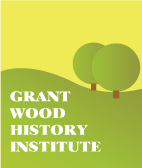The Power of 'Why?'
"[A]s a teacher I can no longer take the easy way out, insisting that I am only responsible for conveying the facts of sociology or theology or whatever the subject may be. Instead, I must take responsibility for my mediator role, for the way my mode of teaching exerts a slow but steady formulative pressure on my students' sense of self and world. I teach more than a body of knowledge or a set of skills. I teach a mode of relationship between the knower and the known, a way of being in the world. That way, reinforced in course after course, will remain with my students long after the facts have faded from their minds."
Parker Palmer, To Know as We are Known: A Spirituality of Education. San Francisco: HarperSanFrancisco, 1983. 30.
When I was eleven years old, I took my first physics class. The subject was fascinating, promising the means to understand my own world and the universe beyond it - but the practice of the discipline quickly frustrated me. After one experiment into the properties of electricity I asked my teacher to explain why electricity behaved the way it did. His answer was vague and unsatisfying, so I rephrased my question and asked again. My teacher huffed impatiently and said, "Go get a Ph.D. in physics, come back, and we'll talk." The subject was closed. There was nothing that I, a lowly eleven-year-old, could add to the conversation.
In contrast, History was a subject where the question "why?" was never inappropriate. Especially delightful to me were the occasions when my teacher replied to my question by asking, "why do you think it happened that way?" There is no overstating the pleasure I felt when I realized I could figure out the answer for myself.
These memories returned to me this week as I worked alongside a group of smart, dynamic elementary school teachers in Cedar Rapids, Iowa - the newest educators to join the Bringing History Home program. Their questions and ideas about social studies education reminded me just how much of a difference a good teacher makes in the life of a child. (I have no doubt I might have loved physics more had my teacher been more committed to the process of inquiry than the seemingly unassailable domain of facts.) In talking to mentors and looking over student work from classrooms where the BHH curriculum is already at work, I remembered the heady rush of empowerment that history supplied when I was eleven. In timelines, think-alouds, maps, and essays I saw a similar buoyant energy reflected in the work of children from kindergarten on up.
All the work we do as part of Bringing History Home rests on a central idea - that history is not something you passively receive, but something you do. This is as true for kindergarteners as it is for the college-aged students I most usually teach; as true for fifth-graders as it is for professional historians engaged in research, going to conferences, and working on their books. For all of us, the question of "Why?" is the fuel for our work, for our constantly changing sense of the world. "Why?" is one of the most precious questions we can allow others to ask, and as educators, "Why do you think it happened that way?" the best question we can ask in return.
The practices at work in BHH are intuitively part of what professional historians do - but it's in making those practices explicit to our students that we reveal history as a dynamic human enterprise in which they can take a full and vital part. I hope this blog can foster conversation about how to model history as an enterprise of doing - how to teach our students, at every level, to seek out and analyze primary sources, to select and assess secondary sources, to use maps and timelines as visual organizers that aid them in identifying patterns of change, and to synthesize all of these parts into evidence-supported narratives about the past. Thinking about how to do this has made me a different teacher, thinker, and student - someone who has learned as much from elementary school teachers undertaking these same practices as she can hope to have shared. I'm looking forward to learning even more.
